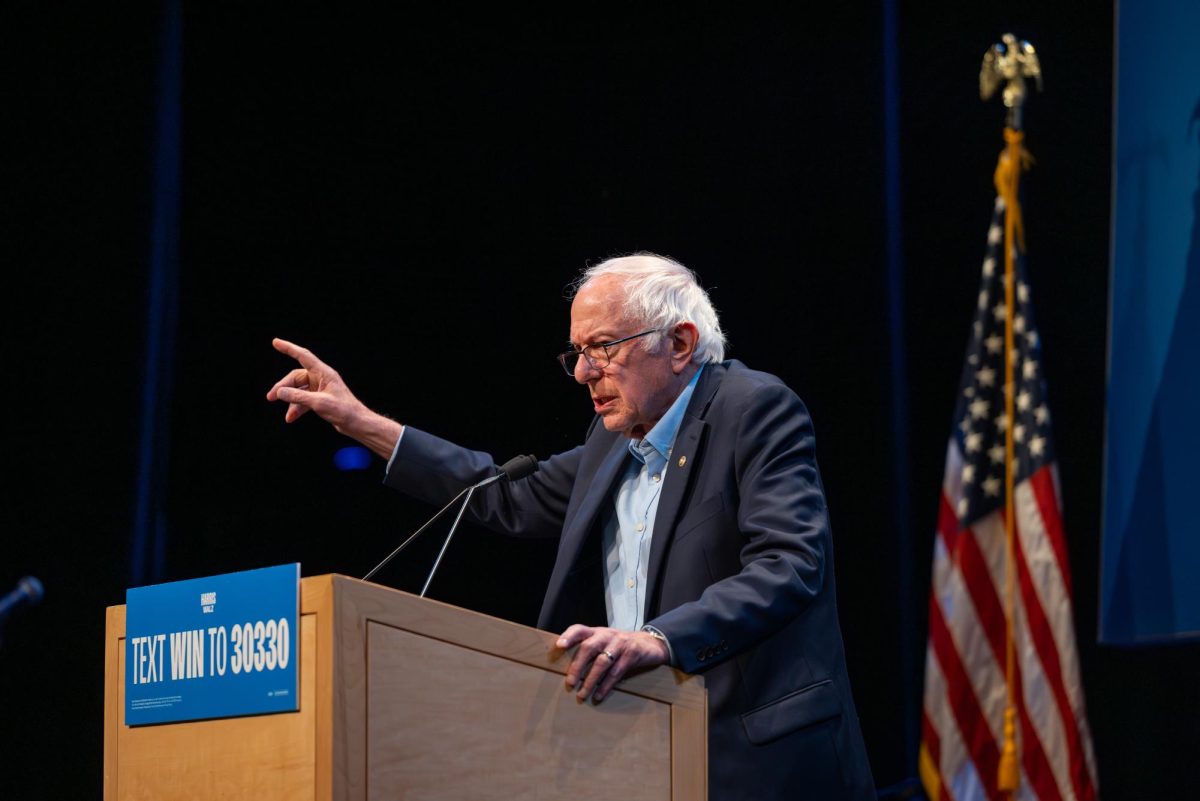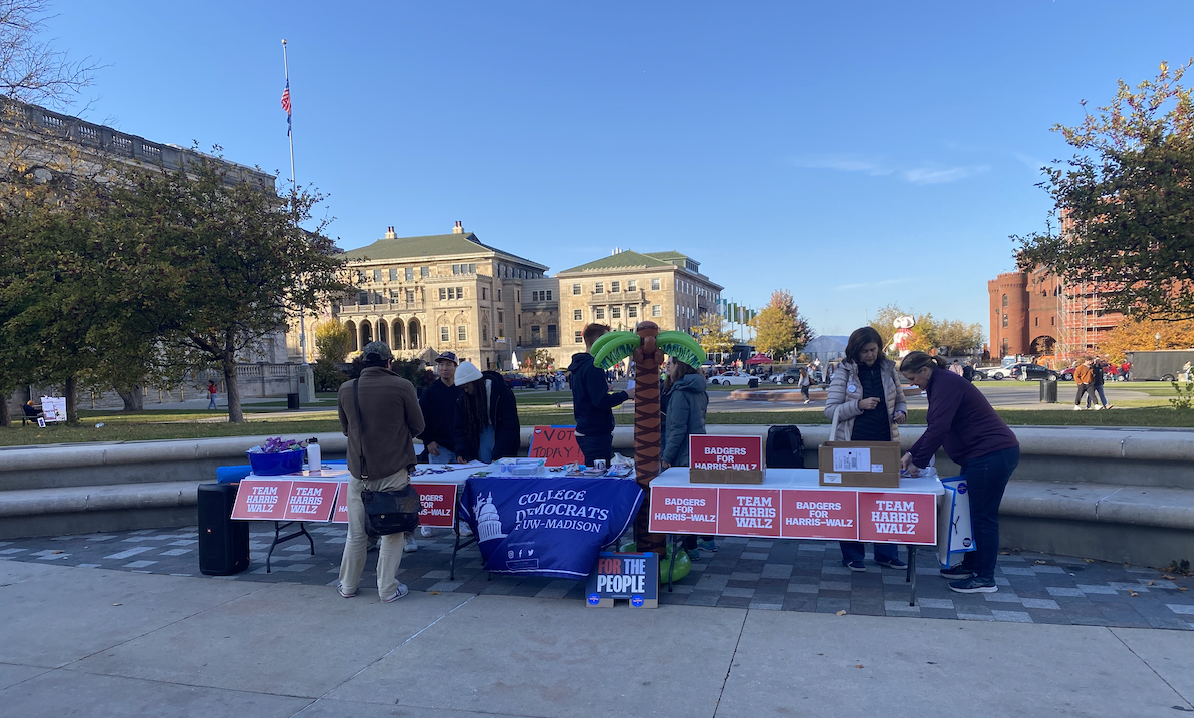WASHINGTON (REUTERS)–President Bush took the first step Monday toward forcing an end to a lockout at West Coast ports, citing concerns about the fragile U.S. economy, but top Democrats and union officials blasted the move as heavy-handed and demonstrating anti-labor bias.
One day after talks aimed at ending the lockout broke down, Bush signed an executive order creating a fact-finding board of inquiry under the 1947 Taft-Hartley Act.
It is the first time the law has ever been invoked when an employer has locked out its workers, and marks its first use since 1978, when former President Jimmy Carter failed to win an injunction ordering coal miners back to work.
“A continuation of this lockout, if permitted to continue, will imperil the national health and safety,” the order stated.
The lockout of ports handling $300 billion a year in trade had raised widespread fears of new disruptions in the faltering U.S. economy. Some 200 ships carrying food, manufacturing equipment and retail goods sit idle off the West Coast.
White House spokesman Ari Fleischer said Bush acted “out of concern for the economy and jobs.” By some accounts, the lockout costs the United States economy as much as $2 billion per day, although some economists say the cost is far less.
The board of inquiry, led by former Sen. Bill Brock, will report to Bush Tuesday about the economic costs of the lockout and the parties’ positions. That will clear the way for the administration to seek an injunction–possibly as early as late Tuesday–to reopen the ports for 80 days.
“The country has been patient … But now ordinary Americans are being seriously harmed by this dispute,” said Labor Secretary Elaine Chao, noting some factory workers had already lost their jobs because parts could not be delivered, and millions of dollars worth of food was rotting on the docks.
“These layoffs will only increase if the ports do not reopen this week,” Chao told reporters. She said Bush wanted to let the parties resolve the dispute, but decided to intervene given mounting economic costs and national security concerns.
UNION SAYS DECISION UNNECESSARY
Richard Trumka, secretary-treasurer of the AFL-CIO, a federation of 66 U.S. labor unions, said Bush’s decision was unprecedented, unnecessary and would delay resolution of the labor dispute, possibly for months.
“This is the wrong decision. The federal government has tipped the balance of power heavily in the employers’ favor,” Trumka said, noting a federal mediator needed more time.
He said the 10,500-member International Longshore and Warehouse Union agreed late Sunday to return to work for seven days while negotiations continued, but the Pacific Maritime Association, representing shippers and terminal operators at the 29 West Coast ports, rejected the offer.
Trumka said the union offer was unconditional and could have produced a deal within a week, but the PMA said the union had insisted the PMA drop a discussion about new technologies.
The PMA ordered the lockout Sept. 29 after accusing the dock-workers union of staging illegal work slowdowns as contract talks bogged down over the issue of how new technology would be introduced, and its impact on union jobs.
Trumka denied a deliberate work slowdown. He said the workers had legitimate safety concerns and would respond the same way if safety concerns arose during the 80-day period.
Sen. Edward Kennedy, a Massachusetts Democrat, called Bush’s use of the Taft-Hartley law an unnecessary and “heavy-handed remedy … Once again, the administration is demonstrating its anti-worker bias,” he said.
FOOD ROTTING, MILITARY SHIPMENTS HELD UP
Chao said Bush had no choice but to intervene.
“Family farmers and ranchers are being devastated by this shutdown. Millions–if not billions–of dollars of American produce, meat and poultry are rotting in containers on the docks and on idled trucks and railcars,” she said.
She also cited security concerns, noting commercial shippers carry equipment and supplies to U.S. troops.
The union rejected that argument, saying it had vowed to continue moving military shipments, just as it had agreed last week to resume unloading cargo shipments to Alaska and Hawaii.
The three-member board of inquiry appointed by Bush will gather data and talk with both parties. Chairman Brock, a Republican from Tennessee and national party chairman in the 1970s, also served as trade representative and labor secretary in President Ronald Reagan’s administration.
After he gets the report, Bush can seek a court injunction to halt the work stoppage for 80 days. Administration officials said they expect Bush to act as early as Tuesday or Wednesday.
If the ports are ordered re-opened and the dispute is not settled after 60 days, the act requires a secret-ballot vote by the workers on the employers’ final offer. If the offer is rejected, the lockout could resume after 80 days.
Before talks broke down Sunday, the White House appeared reluctant to intervene. Administration officials feared intervention would fail and prompt a backlash by organized labor against Republicans in Nov. 5 congressional elections.
In the last 55 years, courts have granted 29 of the 31 Taft-Hartley back-to-work orders presidents have sought.
Chao said the White House has intervened in all 11 port strikes or shutdowns since the Taft-Hartley Act passed, but officials said that in eight of those cases, the parties did not resolve their differences within the 80-day period.







